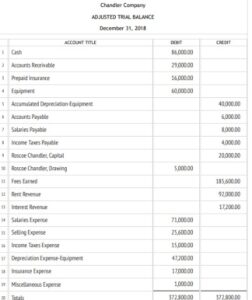India Payroll And Statutory Compliance A Complete Guide

Next, calculate employer and employee payroll tax liability for ESI, EPF, EPS, the health and bookkeeper duties education cess, and employee income taxes as percentages of employees’ gross pay. The process also involves compliance with legal and tax regulations, as well as company policies related to employee compensation. In simpler terms, payroll processing is the entire methodology to accurately calculate the net pay of employees, taking into account all the relevant factors and policies. Organizations can streamline the payroll process, reduce errors, and save time and resources by outsourcing payroll processing or investing in automated software. Effective payroll processing is essential for maintaining employee satisfaction and financial stability, and organizations that prioritize this function are more likely to succeed in the long term. As a payroll officer, it becomes your responsibility to dig into the data and extract the required information and share the reports.
Paying salaries to your employees forms the major part of the post-payroll process. Once the payroll calculation is completed, you can send the bank advice to your corporate bank for salary disbursement. But you can skip right over this process if you opt for payroll software that has an in-built direct deposit feature. what is construction in progress accounting: everything you need to know Payroll calculation is an integral part of any organization’s operations.
Tax deduction at source (TDS)
Organisations can exponentially heighten their financial health, better manage their workforce, and remain compliant with governmental regulations by leveraging the comprehensive resources of payroll providers. In essence, outsourcing payroll processing can be an empowering endeavour for companies of all sizes. It’s important to note that organizations need to comply with legal and tax regulations when it comes to payroll processing in India.
Local payroll outsourcing
- For most employees, the EPF contribution rate is 12 % of basic salary, excluding HRA.
- The most important yet untouched element in payroll processing is the morale of an employee.
- Currently, the ESI contribution to the employer is 3.25% of the wages, and for employees is 0.75% of the wages payable in each wage period(Monthly).
- During payroll processing, all statutory deductions of an employee such as TDS, PF, Employees State Insurance (ESI) and professional tax are deducted.
It is important to confirm that the background work done so far as part of pre-payroll is error-free to ensure that the subsequent activities of payroll run smoothly. Payroll processing is a critical role for any company; in India, this process entails navigating various laws and regulations, an arduous and tedious process. Outsourcing payroll can prove to be highly beneficial, providing organisational cost savings, access to optimised expertise, risk management, and improved efficiency. In India, it is recommended to update payroll records every month to ensure accuracy and compliance. It is essential to maintain accurate and up-to-date payroll records for at least five years, as mandated by Indian labor and tax laws.

Form 26AS is a Tax Credit consolidated Statement which provides the below details to a taxpayer. Wherever PT is applicable, it might be challenging for the employers to catch hold with the registration process of all the states. Listed below are the PT slabs for various conditions and Union territories in India. PT or a Professional tax is a direct tax that applies to all individuals who earns income from employment, practicing their trading or professions such as doctors, lawyers, teacher, CA, etc. To check the EPF balance on a mobile phone, employees can download the UMANG app.
Employees are eligible for paid maternity leave after working for at least 80 days in the last 12 months. Mothers may take this leave up to eight weeks before their due date and may use the rest until the child is 15 months old. Each state government sets its own minimum wage using a complex method of reviewing hundreds of different jobs. As a business function, here’s a high-level overview of the series of steps involved in completing payroll successfully from scratch.
Why is Payroll Processing Important for Businesses?
Here, you will understand the tax implications of the common constituents of salary. Moreover, these different components have different tax implications, adding further to the havoc. Please fill out your contact information and hiring details, and an expert from our team will be in touch with you shortly.
Payroll Processing in India: Step by-Step Guide on Process, Methods & Stages
For a proper payroll setup in India, you should have a registered company. If you don’t have a registered company at the moment, or want to start a new business with employees, then you can register a new company by following the steps below. The salaries paid to employees must be recorded as they are the biggest expenses for a company. Payroll accounting involves maintaining the company accounts with regard to employees’ salaries. Mastering the intricacies of payroll in India is no small feat, but with the right knowledge and tools, lower of cost or market financial definition of lower of cost or market it’s achievable. This guide provides you with a roadmap to navigate this complex landscape.

